Tips in Chongqing
 0 Comment(s)
0 Comment(s) Print
Print E-mail China Today, December 11, 2017
E-mail China Today, December 11, 2017
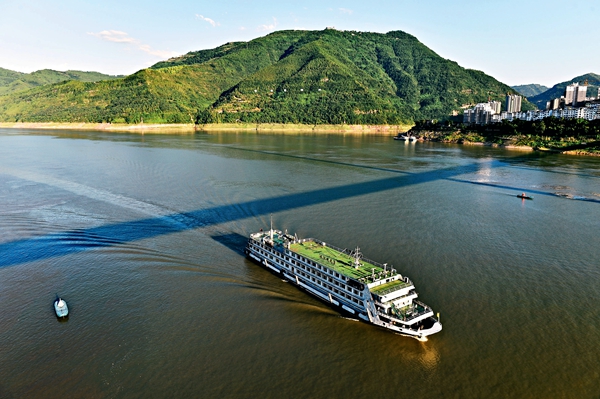
The Three Gorges
The Three Gorges refer to the Qutang, Wuxia, and Xiling gorges. They stretch about 200 kilometers and form a fantastic scenery of mountain cliffs and rivers. The Qutang Gorge is in Fengjie County, Chongqing. Wuxia Gorge spans Wushan County of Chongqing, Enshi Tujia and Miao Autonomous Prefecture, and Badong County of Hubei Province. The Xiling Gorge is in Zigui County, Yichang City, Hubei Province. Tourists can take a boat trip along the route, which is one of two great travel routes that China promotes to the world. Tourists can travel from Chong-qing to Yichang (from upper to lower reaches), or from Yichang to Chongqing. It normally takes three to six days for the whole trip.
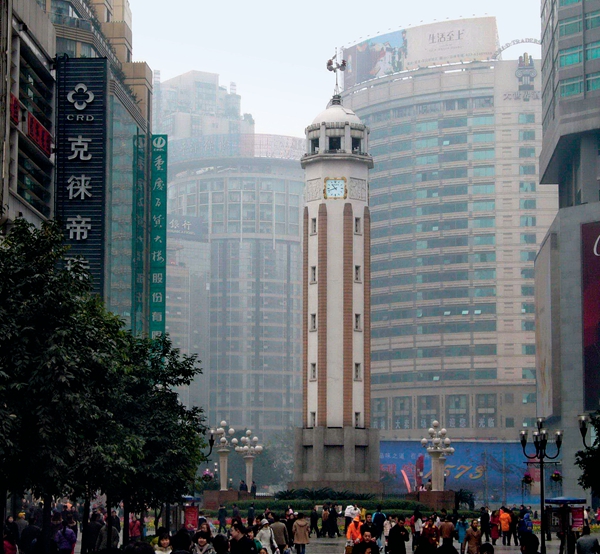
People's Liberation Monument
Located in the central business district in Yuzhong District, the monument was built in October, 1946 to commemorate the victory of the Chinese People's War of Resistance Against Japanese Aggression. It has become a symbol of the city and its liberation. The area surrounding the monument has become a bustling business district, where people go shopping, stroll around, dine out and launch business and entertainment activities.
Transportation: Take Chongqing Rail Transit (CRT) Line 2 and get off at Linjiangmen Station.
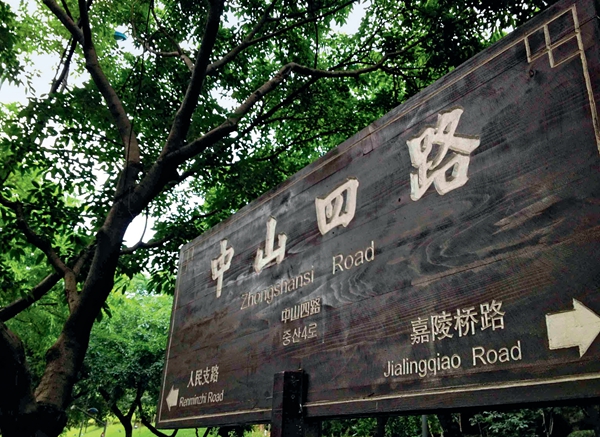
Zhongshansilu Road:
The Zhongshansilu Road is in the Shangqing Temple area in Yuzhong District and is where the CPC Chong-qing Municipal Committee and Chongqing Municipal Government are located. On the two sides of the street are many historical buildings built during the Chinese People's War of Resistance Against Japanese Aggression. From 1937 to 1946, some departments of the Nationalist Government were located on this road, making it a command center in the East to fight against fascism. On this street, tourists can visit the Democratic Parties History Museum of China, the Gui Garden (where the October 10th Agreement was signed between the CPC and the Kuomintang), Zhou's Residence (where Zhou Enlai lived and worked as the chief representative of the CPC in Chongqing Negotiation), and the former Office of the President of the Nationalist Government.
Transportation: Take CRT Line 2 and get off at Zengjiayan Station.
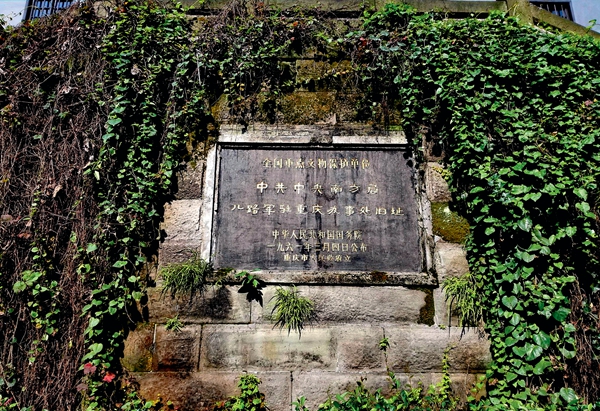
Liziba Park
Liziba Park is nestled in the Eling Mountain and faces the Jialing River to its north. Resplendent in beautiful scenery and winding trails, the park comprises five historical complexes, including the former site of the National Senate, and mansions of famous commanders during the fight against Japanese invasion. A visit to those sites gives visitors a glimpse of Chongqing's wartime politics, economy, culture, military, diplomacy, and finance. The park is adjacent to downtown but basks in a relatively secluded atmosphere, therefore serving as an ideal place to escape bustling city life. It attracted many higher-ranking officials of the Nationalist Government to work here and establish important governmental departments.
Transportation: Take CRT Line 2 and get off at the Liziba Station.

Hongya Cave:
Hongya Cave is a riverfront area situated in the central business district of Chongqing and the intersection of the Yangtze River and Jialing River. The area retains local traditional architectural features, with traditional stilted houses clinging tightly to the steep mountain interspersed with winding staircase streets. The area has four main streets, where visitors can see the local architecture and sceneries such as waterfalls, as well as stroll around the old streets to experience local culture and try delicious snacks.
Transportation: Take CRT Line 2 and get off at Linjiangmen Station and walk for about 500 meters northeast.
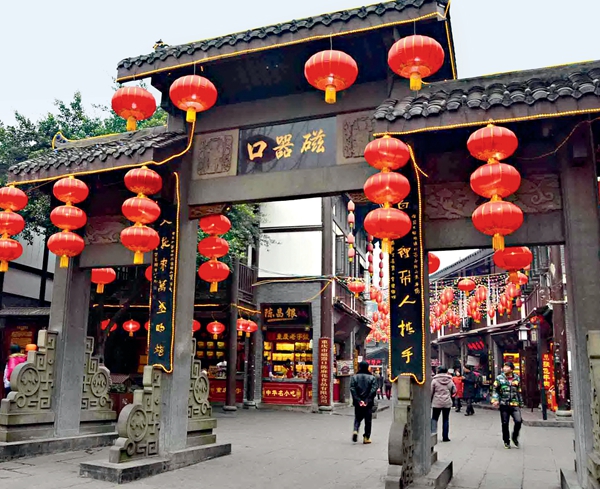
Ciqikou:
Ciqikou, about 14 kilometers west of Chongqing, is an old town sitting on the bank of the Jialing River. There are 12 streets and lanes in the town, with architectures from the Ming and Qing dynasties still standing. Along the stone slab-paved paths are many shops. Ciqikou is famous for producing porcelain. In the past, the village was full of many temples and teahouses. Famous people including Mao Zedong, Zhou Enlai, Chiang Kai-shek, Feng Yuxiang, famous painter Xu Beihong, and Feng Zikai all visited this town. Now, there are still many teahouses in the town, with 13 teahouses in a 100-meter-long street that are still open and prosperous today.
Transportation: Take CRT Line 1 and get off at Ciqikou Station.





